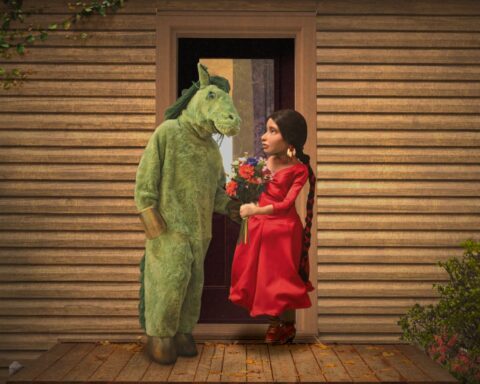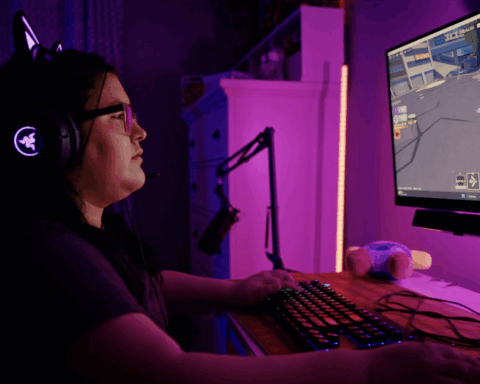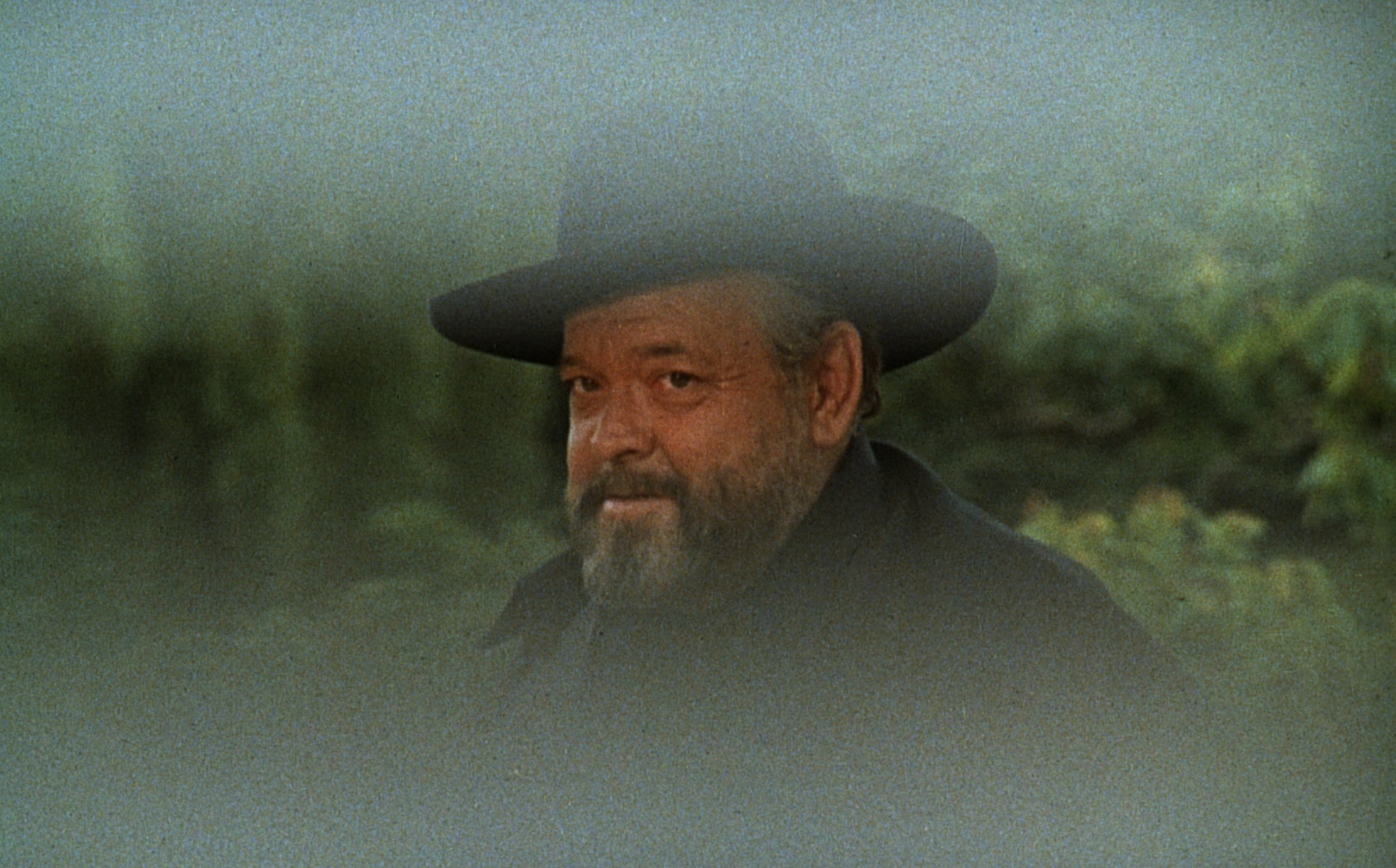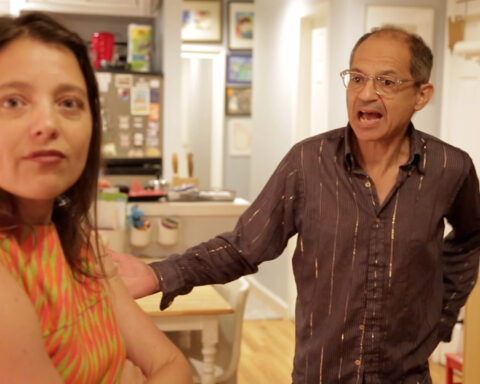Science Fair
(USA, 90 min.)
Dir. Christina Costantini, Darren Foster
Science Fair is cute, fun, and inspiring, but let’s not kid ourselves: we’ve seen this documentary a million times before. It’s Spellbound with the periodic table instead of the alphabet. It’s Step without the dancing. It’s Bee Nation without the awkwardness of cheering on Indigenous kids as they master the colonial tongue. Directors Christina Costantini and Darren Foster have clearly studied and understood the successful formula set by their predecessors. They’ve devised a crowd-pleasing doc that comes to theatres after winning a boatload of audience awards from festivals like Sundance and SXSW. It’s exactly the kind of safe and pandering documentary that would score audience awards, but even I must admit that as much as I hated the movie in its first act, Science Fair won me over.
Don’t mind the cynicism. The kids in Science Fair are whip-smart and there is no denying that the competition of the International Science and Engineering Fair (ISEF) offers an extraordinary opportunity to nurture gifted minds. It’s just that these kids clearly know they’re in a movie and there’s a self-aware precociousness to Science Fair that leaves one hoping, just hoping, that some kid will screw up the formula in his or her baking soda and vinegar volcano experiment and blow them all to hell.
The kids in Science Fair all act as if they’re subjects of an early Jean Rouch verité film. Well aware of the performative aspects of the camera, they play up their nerdiness and embrace their geeky ambitions, boasting about themselves in verbose self-congratulations. Take, for example, 13-year-old self-described “child prodigy” Anjali, who introduces herself, and her research to detect arsenic in water, with the glib observation, “I would say that a lot of people are jealous of me.” German competitor Ivo, who resurrects a century-old aeronautical design and adapts it to contemporary sensibilities, displays a brilliant mind that could change the world, but one that can also be off-putting with his self-confidence. Ditto West Virginia math whiz Robbie, who has enormous potential yet is a bit too dismissive of people who work within conventional systems.
But let’s be honest: gifted children, né “nerds,” generally lack in social skills in almost exact proportion to what they have in intelligence. These students are clearly excited by the opportunities at their feet and the liberating feeling of being in a community of like-minded geeks. Science Fair captures a community of misfits united by their excitement for higher learning. All of this is well articulated by former ISEF winner Jack Andraka, who appears in archival footage of his winning moment as he runs screaming to the podium in a cringe-inducing ugly cry and provides an interview that reflects on how the science fair changed his life. It’s not the kids’ fault they come off poorly in some moments of the film, although one could fault the editors and question the creative choice to make the subjects resemble characters in a Christopher Guest movie. It’s debatable how many of the film’s laughs are to be directed at the kids, rather than to be enjoyed with them.
However, one must applaud Costantini and Foster for turning their lenses on a variety of kids from different backgrounds. Some of these students will genuinely move and inspire audiences. Kashifa, for example, is a loner as one of few Muslim girls at her South Dakota high school. Her science mentor is the school’s basketball coach, who doesn’t really understand her ambitious research into sports psychology, but he sees in her a talented young person who deserved to be nurtured just like any underdog athlete. Costantini and Foster highlight the significance of the science fair for kids like Kashifa as they tour the halls of the school, interview several of her classmates, and discover that literally nobody at her school knows who she is. The high school has yet to acknowledge her award-winning projects in the same way they might give attention to an all-star athlete (or white kid) over the PA system.
Similarly, Science Fair features the Brazilian team of Myllena and Gabriel, who come from one of the country’s poorest states. Their research seeks to cure the deadly Zika virus that afflicts members of their community. Moreover, Myllena’s success in winning a spot to the competition in Los Angeles provides a victory in itself for her family, as she tearfully uses the opportunity to remind audiences never to doubt a kids’ potential based on his or her background.
The film also finds a great subject in Dr. Serena McCalla, a researcher from Long Island who devotes her career (and sacrifices her personal life) towards preparing students for the ISEF. She is a stern task-masker, but a personable one, as few of her bashful students spend much time talking to the camera. Dr. McCalla offers a tough regimen that sees results—nine of her students qualify for ISEF while most schools are lucky to send one or two kids—but she comes by it honestly, being the child of immigrant parents and having worked extremely hard to make the most of the opportunities her parents gave her. Dr. McCalla’s narrative echoes throughout the students’ stories, since many of them are first generation immigrants who feel responsible to measure up to the sacrifices of their parents and excel in school. She’s a central figure in the film, and arguably the sprocket that makes it work by articulating many of significant themes demonstrated by the students’ actions.
Science Fair follows the usual path of similar competition-style documentaries as Costantini and Foster spotlight participants in various elimination rounds that build to the climactic event with feel good spirit. The students become more relatable as the film reaches the ISEF competition in LA and the subjects are more focused on their projects than on their screen presence. It’s genuinely inspiring to see so many young people working together to find ways to make the world a better place. The film is especially significant in the positive representation it affords to students pursuing research, or “committing science” as Stephen Harper might say, at a time when science and empirical evidence is under attack from the powers that be. The students in Science Fair might be annoying at times, but at no moment are they half as annoying as most adults holding political offices. Hooray for nerds.
Science Fair opens in Toronto at the Lightbox on Nov. 2.












